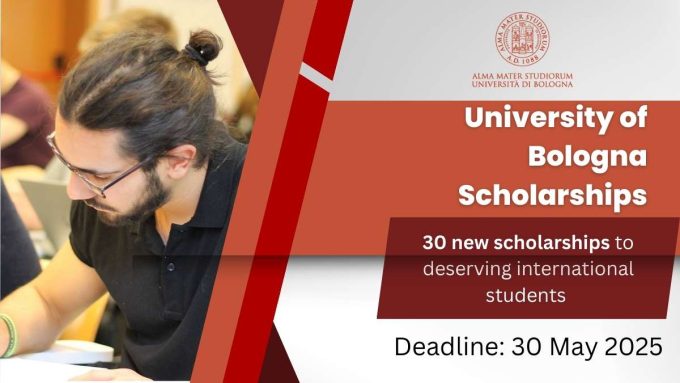Embarking on a legal career requires more than just academic knowledge; practical experience and exposure to international legal systems are invaluable. The Max Planck Institute for Comparative Public Law and International Law (MPIL) in Germany offers a prestigious internship program for the 2025-26 period, providing law students with an unparalleled opportunity to engage in advanced legal research and practice. This program is designed to immerse interns in the intricacies of comparative public law, European law, and international law, fostering a comprehensive understanding of these fields.
About the Max Planck Institute for Comparative Public Law and International Law
Located in Heidelberg, Germany, the Max Planck Institute Law Internship is a leading research institution dedicated to the study of public law, international law, and European Union law. The institute is renowned for its contributions to legal scholarship and its role in addressing contemporary legal challenges. By hosting a vibrant community of scholars, researchers, and practitioners, the MPIL serves as a hub for intellectual exchange and legal innovation.
Overview of the Max Planck Institute Law Internship Program
The Max Planck Institute Law Internship program is tailored for undergraduate and graduate law students who exhibit exceptional academic performance and a keen interest in legal research. Interns are integrated into the institute’s research projects, allowing them to apply their theoretical knowledge to practical legal issues. The program emphasizes the development of research and drafting skills, critical analysis, and a deep understanding of various legal systems.
Duration and Structure
The Max Planck Institute Law Internship spans up to 12 weeks, during which interns engage in a variety of activities, including:
- Conducting Legal Research: Interns undertake in-depth research on topics related to international law, public law, and EU law, contributing to the institute’s ongoing projects.
- Participating in Institutional Meetings: Interns assist in organizing and contributing to meetings, seminars, and discussion forums, enhancing their understanding of collaborative legal work.
- Attending Workshops and Conferences: Interns have the opportunity to attend international workshops and conferences, exposing them to global legal perspectives and networking opportunities.
- Drafting Legal Summaries: Interns are tasked with writing summaries of legal cases and texts, honing their analytical and writing skills.
Supervision and Mentorship
Each intern is assigned a mentor from the institute’s research staff, providing guidance and support throughout the internship. This mentorship ensures that interns receive constructive feedback and professional development advice, facilitating a meaningful learning experience.
Benefits of the Max Planck Institute Law Internship
Participating in the MPIL internship program offers numerous advantages:
- Financial Support: Interns receive a reimbursement of up to €450 per month, assisting with living expenses during the internship period.
- Practical Experience: Interns gain hands-on experience in legal research and practice, bridging the gap between academic study and professional application.
- Professional Development: The program enhances interns’ research, writing, and analytical skills, preparing them for future legal careers.
- Networking Opportunities: Interns interact with esteemed legal scholars and practitioners, expanding their professional network and exposure to diverse legal perspectives.
- Cultural Exposure: Living and working in Heidelberg allows interns to experience German culture and the European legal environment firsthand.
Eligibility Criteria
To be considered for the Max Planck Institute Law Internship, applicants must meet the following requirements:
- Academic Enrollment: Applicants must be enrolled in an undergraduate or graduate law degree program at a recognized university.
- Academic Excellence: A strong academic record is essential, demonstrating the applicant’s dedication and capability in legal studies.
- Research and Drafting Skills: Applicants should possess proficient research and drafting abilities, indicating their readiness to contribute effectively to the institute’s projects.
- Language Proficiency: Fluency in English, both written and spoken, is required. Proficiency in other EU languages, particularly German, is advantageous but not mandatory.
Application Process
Prospective interns should follow these steps to apply:
- Prepare Application Materials: Gather the following documents:
- Curriculum Vitae (CV): A detailed CV outlining educational background, relevant experiences, and skills.
- Cover Letter: A letter expressing motivation for applying, specific interests in the institute’s work, and how the internship aligns with career goals.
- Academic Transcripts: Official transcripts from current and previous educational institutions.
- High School Diploma: A copy of the high school diploma or equivalent certification.
- Submit Application: Send the compiled application materials via email to [email protected]. Ensure that all documents are in English and submitted before the application deadline.
- Await Confirmation: After submission, applicants will receive an acknowledgment email. The selection process may take several weeks, and successful candidates will be notified accordingly.
Application Deadline of Max Planck Institute Law Internship
The deadline to apply for the 2025-26 internship program is June 1, 2025. Applicants are encouraged to submit their applications well in advance to ensure consideration. Please visit: https://www.mpil.de/en/pub/research-interaction/internship-programme.cfm
Tips for a Successful Application
To enhance the likelihood of acceptance into the program, consider the following recommendations:
- Tailor Your Application: Customize your cover letter to reflect genuine interest in the MPIL’s work and how your background aligns with the institute’s research areas.
- Highlight Relevant Experience: Emphasize any prior experience in legal research, writing, or related activities that demonstrate your suitability for the internship.
- Demonstrate Language Skills: If proficient in languages other than English, particularly German, mention this in your application, as it may be beneficial.
- Provide Strong References: If possible, include references from academic or professional mentors who can attest to your abilities and character.
Living in Heidelberg
Heidelberg is a picturesque city known for its rich history, vibrant cultural scene, and esteemed university. Heidelberg is a picturesque city known for its rich history, vibrant cultural scene, and esteemed university. Nestled along the Neckar River, it offers a perfect balance between academic serenity and urban charm.
Interns at the Max Planck Institute benefit not only from the academic rigor of their work but also from a warm and inspiring environment where intellectual curiosity thrives. With its mix of old-world architecture and a youthful population, Heidelberg offers an ideal backdrop for an enriching professional and cultural experience.
Additional Considerations for Max Planck Institute Law Internship
Research Opportunities
Interns often have the opportunity to contribute to ongoing research projects that can result in co-authorship or acknowledgment in academic publications. This is especially advantageous for students considering future doctoral studies or academic careers. Some interns may even be invited to collaborate beyond the internship duration, depending on the quality of their work and the relevance of their interests.
Engaging with the Academic Community
One of the program’s unique aspects is its academic ambiance. Interns are welcomed as junior scholars and are encouraged to participate in internal colloquia, legal discussions, and even present their research ideas. This helps them refine their academic voice, gain confidence in public speaking, and receive feedback from experienced professionals.
Post-Internship Opportunities
Interning at MPIL significantly enhances one’s academic and professional credentials. Many alumni of this program have proceeded to pursue LLM or PhD programs at top institutions or have been recruited by prominent law firms, NGOs, and international organizations like the UN or the European Commission. The Max Planck experience is often cited as a major milestone in their legal journey.
Visa and Travel Assistance
Non-EU citizens may require a visa to enter and stay in Germany for the internship duration. While the MPIL does not directly sponsor visas, they do provide support letters that can assist in the application process. Interns are encouraged to start the visa application process as soon as they receive their acceptance letter to avoid delays.
Conclusion
The Max Planck Institute Law Internship in Germany 2025–26 is more than just a professional engagement—it is a transformative journey into the world of advanced legal research and global scholarly collaboration. For law students and recent graduates passionate about international law, constitutional law, and comparative legal systems, this internship opens doors to invaluable learning and networking opportunities.
Set in the intellectually rich and culturally vibrant city of Heidelberg, the internship offers an experience that combines academic rigor with international exposure. Whether your ambition lies in academia, international legal practice, or public policy, the MPIL internship is a solid stepping stone toward achieving your goals.
If you are an ambitious legal mind ready to immerse yourself in a dynamic and globally respected research environment, then the Max Planck Institute internship might just be your next big leap.
Frequently Asked Questions (FAQs)
1. Who can apply for the Max Planck Institute Law Internship?
This Max Planck Institute Law Internship is primarily intended for advanced undergraduate and graduate students of law, political science, or related disciplines. While students from around the world can apply, preference is given to those who demonstrate a clear interest in public international law, comparative public law, or EU law. A solid academic background and proven research and writing capabilities are essential.
2. Is German language proficiency required to participate in the internship?
No, proficiency in German is not mandatory. The working language at the Max Planck Institute is English, especially for interns. However, some knowledge of German can be advantageous when participating in additional academic activities, engaging with the local community, or reading specific legal materials. If you’re proficient in other languages, particularly French or Spanish, that may also be an asset depending on your assigned project.
3. Are the internships paid?
While the Max Planck Institute internship is not a salaried position, interns are eligible for a modest monthly reimbursement of up to €450. This stipend is intended to help with living expenses during your stay in Heidelberg. Interns should still be prepared to cover most of their travel and accommodation costs independently, although affordable housing options are available in the city.
4. What is the typical work schedule like for interns at the MPIL?
Interns typically work on a full-time basis during weekdays, with working hours mirroring the institute’s schedule—usually from around 9:00 AM to 5:00 PM. The program is designed to be immersive, and interns are encouraged to fully participate in daily academic life, including seminars, research meetings, and informal scholarly exchanges. Flexibility may be granted depending on the intern’s university commitments or other special circumstances.
5. What are the benefits of doing this Max Planck Institute Law Internship compared to other legal internships?
Unlike many internships that focus on administrative support, the Max Planck Institute Law Internship emphasizes academic contribution and independent research. Interns collaborate directly with senior researchers and contribute to cutting-edge legal studies in an intellectually stimulating environment.
Max Planck Institute Law Internship serves as a solid stepping stone for careers in academia, international organizations, or legal practice, particularly in the fields of international public law and comparative constitutional law. It also demonstrates a strong commitment to academic excellence and global awareness—qualities that are highly valued in graduate admissions and job applications.













Leave a comment